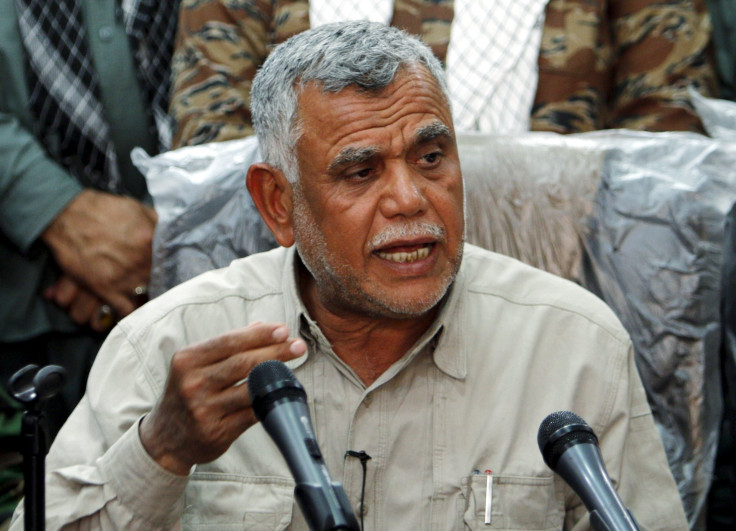Iraqi Shiite Militia Chief Says Russia, Unlike US, Is 'Very Serious' About Fighting ISIS

Days after Iraq’s Prime Minister Haider al-Abadi and Kurdish leader Massoud Barzani spoke out in favor of the idea of Russia conducting airstrikes on targets of the Islamic State group, also known as ISIS, in Iraq, one of the country's most powerful Shiite groups also lent support to the possibility of Russian warplanes carrying out targeted operations.
Comparing Russia's efforts with that of the United States, a senior leader of the Badr Organization, which is part of Iraq’s Popular Mobilization Force -- composed almost entirely of Shiite militias -- lamented the U.S.-led coalition’s “lack of seriousness” in fighting ISIS.
“To this day, we have not seen a really serious effort to fight Daesh,” Hadi al-Amiri, head of the Badr Organization, reportedly said Monday, using an Arab acronym for the Sunni militant group. “There are some who try to contain Daesh but not really eliminate them and prevent those fighters from returning to Europe, which is where they came from.”
Russia, which began airstrikes in Syria last week, “is moving in a very serious way” against ISIS, Amiri, who is believed to have close ties with Iran, reportedly added.
An international coalition led by the U.S. has been conducting airstrikes against ISIS in Iraq for over a year now. However, both Iraqi government forces and Kurdish militias in northern Iraq have criticized the U.S. for failing to provide air support to those fighting ISIS on the ground.
“We were expecting the international coalition, Americans to bring massive air power to protect our forces,” Abadi told France 24 on the sidelines of the annual United Nations General Assembly last week. “We haven't received that. At the moment we are getting support, but it's not major, it's limited. What matters for us is how best to fight Daesh.”
Abadi added that its military was cooperating with Russia insofar as intelligence and security is concerned.
“It is in our interest to share information with Russia,” Abadi reportedly said. “Russia has a lot of information. The more information we gather the more I can protect the Iraqi people.”
The Russia government, which is under fire from the U.S. and its allies for allegedly targeting civilians and U.S.-backed Syrian rebels in its airstrikes, said it is not planning to expand its airstrikes to Iraq.
“We were not invited, not asked,” Russia Foreign Minister Sergei Lavrov said last week. “We are polite people, as you know. We don’t come if not invited.”
© Copyright IBTimes 2025. All rights reserved.






















